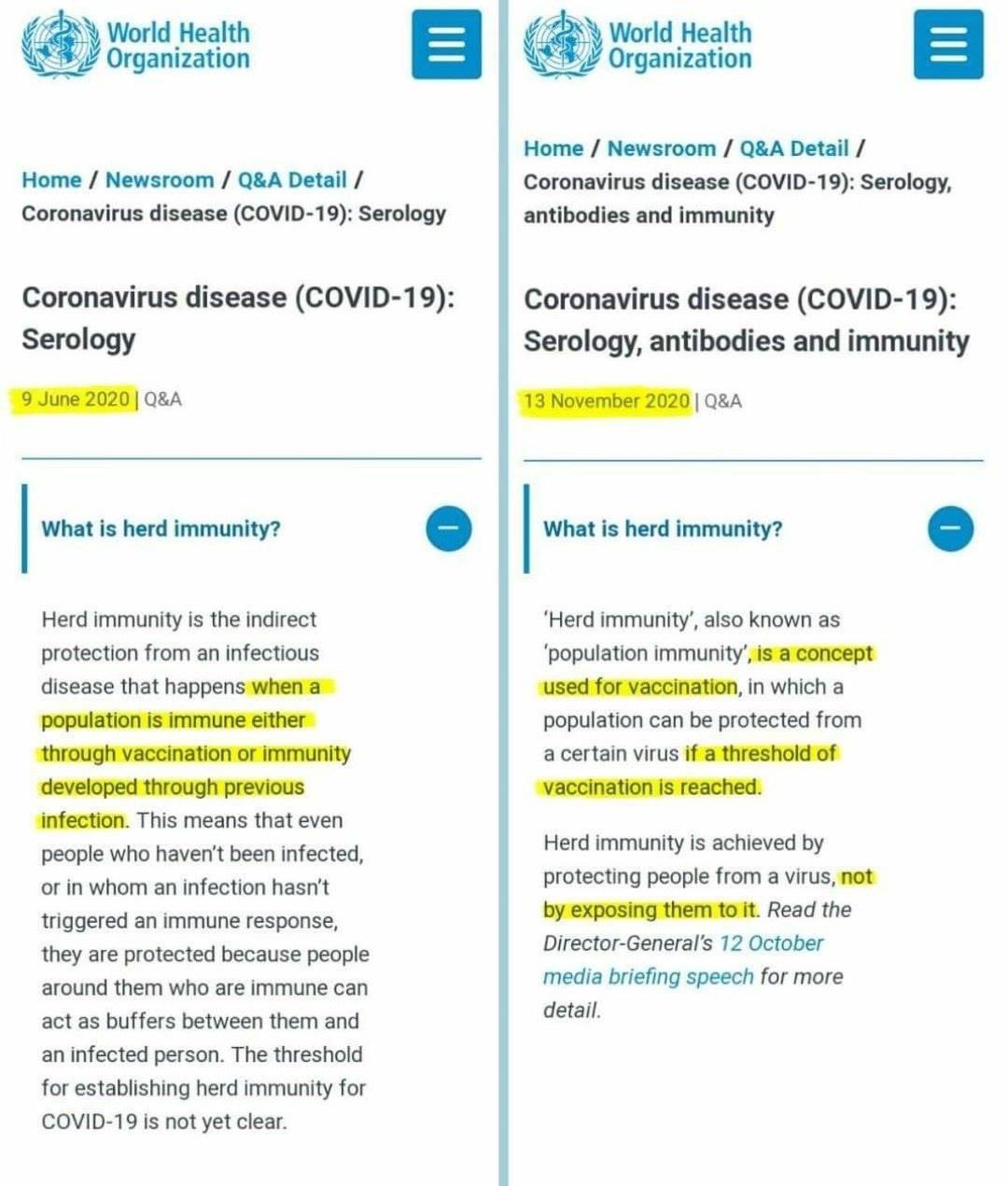 EqAyzmAUcAMkbkA.jpg
EqAyzmAUcAMkbkA.jpg
WHO silently changes the definition of herd immunity
According to the organization, the normal function of the human immune system has stopped even being relevant enough to merit mention under "herd immunity". Abuse of language is abuse of power. Verbal deception is deception indeed.
In the endless barrage of political deceit coming from the World Health Organization during this year, here's the latest attack on science coming from the supposed purveyors of science. See here, the original — scientifically correct definition — from a June archive, in contrast with the new definition, modified in November to make the public believe that "herd immunity" can only be attained by buying the rushed products from Pfizer and Moderna.

Definitions matter because the truth matters. When someone dishonestly changes a definition from under you, they are always showing you they care more about deceiving you by any means necessary, than they care about the truth.
Remember: abuse of language is abuse of power.
At the time of publishing this, the definition from WebMD reads as follows:
Herd Immunity
Herd immunity, or community immunity, is when a large part of the population of an area is immune to a specific disease. If enough people are resistant to the cause of a disease, such as a virus or bacteria, it has nowhere to go.
While not every single individual may be immune, the group as a whole has protection. This is because there are fewer high-risk people overall. The infection rates drop, and the disease peters out.
Herd immunity protects at-risk populations. These include babies and those whose immune systems are weak and can’t get resistance on their own.
How Do You Achieve Herd Immunity?
There are two ways this can happen. [ed. the bolding is ours]
You can develop resistance naturally. When your body is exposed to a virus or bacteria, it makes antibodies to fight off the infection. When you recover, your body keeps these antibodies. Your body will defend against another infection. This is what stopped the Zika virus outbreak in Brazil. Two years after the outbreak began, 63% of the population had had exposure to the virus. Researchers think the community reached the right level for herd immunity.
Vaccines can also build resistance. They make your body think a virus or bacteria has infected it. You don’t get sick, but your immune system still makes protective antibodies. The next time your body meets that bacteria or virus, it’s ready to fight it off. This is what stopped polio in the United States.
 EqAyzmAUcAMkbkA.jpg
EqAyzmAUcAMkbkA.jpg



